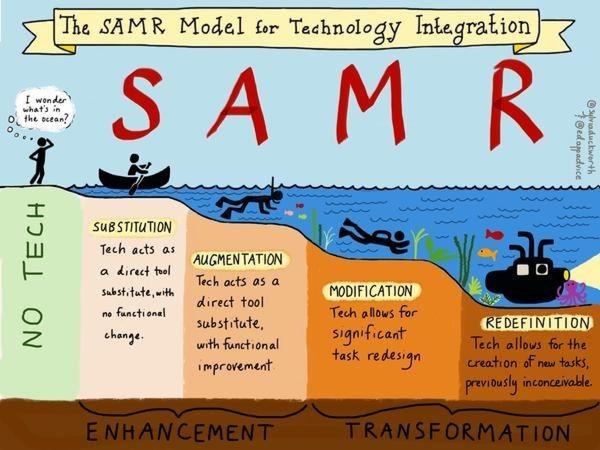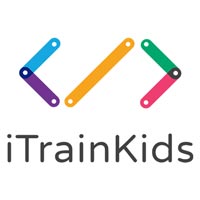Technology will offer incredible opportunities to maintain meaningful relationships with students over the coming months. Students will need teachers more than ever and schools require effective ways to manage and communicate effectively. The disruption is a major challenge to educational systems but from adversity comes innovation.
 Hamish Mackenzie, Founder, Digital Resilience
Hamish Mackenzie, Founder, Digital Resilience
In 2019 Hamish founded Digital Resilience UK, an agency that supports schools with mobile learning technology and online safety. Hamish has broad experience working across the UK education and Ed-Tech sectors. He has worked as a Lead Practitioner teacher and senior leader specialising in digital learning.
The COVID-19 pandemic is changing every part of our economy and society. We are witnessing a global paradigm shift. Within education, school leaders worldwide have been forced to rapidly plan and implement a new model of teaching, learning and supporting young people and their families through an intensely challenging period of social isolation.
The challenges COVID-19 places on young people are significant. Millions of public exams will now not take place this summer, disrupting the entry pathways for HE/FE/apprenticeships and training courses and ultimately impacting the wider economy. A substantial cohort of young people will be denied standardised certificates as proof of their skills, knowledge, experience, aptitude and ability.
Whilst the pandemic is undoubtedly a black swan event, it provides a tremendous opportunity for education leaders and politicians worldwide to consider examination systems and current models of education. Ken Robinson’s famous 2006 TED talk amassed over 65 million views but there are few in education who would not argue that his analysis still holds true 14 years later; namely that we are teaching and examining along 19th century industrial models. The difference now is the technology available and the political motivation present to rewrite the playbook.
At the time of writing, UNESCO estimates that 1.37 billion students are at home as a result of school closures. Education ministries and school leaders worldwide are scaling up approaches to remote and multi-media learning to ensure continuity of education. The global scale and speed of the current educational disruption is unparalleled and, potentially, long-running with no obvious endpoint.
Never has the call to education and cloud technologies been stronger in terms of providing opportunities to help solve a global problem.
There are many examples of EdTech projects that have delivered extraordinary outcomes for individuals and schools. In the UK, I would signpost the EdTech50 initiative as a great place to look for impactful approaches. However, many of these projects are not scalable as they rely on pioneering schools and individuals who have the battle scars of learning what works and what doesn’t – not something that can just be taken off the shelf and switched on.
This gets to the nub of the problem, that technology itself can never, and will never, replace the job of teachers and leaders. However, technology can augment, enhance and redefine the job we do in terms of instruction, testing and examining students. The theory I like to use is Dr Ruben Puentendura’s SAMR model, which looks at how technology can be deployed to transform educational workflows. There are plenty of graphics on how this model can be applied to Microsoft, Google or Apple educational deployments to radically transform the traditional model of education.

The difference now is that ‘business as usual' is not an option. Schools are having to innovate to continue providing education. Witnessing #edutwitter and seeing the work in my school, I have been blown away by the innovation and commitment teachers have shown to continuing to teach despite enforced isolation.
So, what can be done to keep students progressing, learning, growing and thinking during this period of uncertainty? And, to what extent will it change the paradigm when we eventually return to our classrooms?
Greg Hughes has written an excellent article that looks at how EdTech tools can help in the current climate by asserting some of the major benefits. Namely;
-
They provide access to Assessment For Learning (AFL) tools that can provide much more effective, multimedia feedback and quicker turnaround of checking learning through self-assessment. This is light years ahead of a printed 'one size fits all' work pack to see students through several weeks
-
They provide access to high-quality videos and learning resources, many of them free, as well as a wide range of reading materials on websites and free digital books
-
They support an asynchronous model of support and learning - 24/7 access, anywhere in the world on whatever device is handy
-
The vast majority of good online tools and digital devices are easy to use and don't require enormous amounts of time to master - once students pick it up with one teacher/class, they will know how to use it for others
-
Tech can help 'level the playing field' by providing students of all levels and abilities with access to these tools
Whilst these areas are all desirable for teachers delivering lessons from home locations, there are two big considerations that schools need to consider before rushing for a tech solution:
1. Changing behaviour and institutional progression is a marathon, not a sprint. It takes time, energy and resource. Teachers need to feel empowered and supported to adopt new technology and new ways of working, and they have to recognise that it is worth the investment of their time and energy. Even in the current climate, the deployment needs to be strategic if it is to be sustainable
2. Cloud infrastructure is a fundamental requirement. Migrating large organisations to the cloud is a big job but worth the pain.
There will likely be a binary split in schools’ capability to deploy effective remote learning in the coming months. Those schools that have invested in their staff, training, devices and cloud infrastructure, and those who are running fast to catch up. I hope that the resulting variation of experience will lead to a more cohesive national strategy in the post-coronavirus era as the DfE recognises the importance of digital resilience. The efficiencies and productivity gains that can be achieved by migrating to Microsoft or Google education suites are substantial whilst also improving the classroom experience for students.
My advice for schools looking to build remote learning capacity in the coming weeks is to focus on the basics:
-
Understand your staff. Consider confidence levels, the current tech frustrations, the style of teaching and the capacity to change
-
Audit your current landscape. Ensure network access and pick appropriate tools for the tech they have at home with them
-
Do a few things well. Start simple – show how relatively simple workflows can allow learning to be digitalised. Blended and flipped learning methods are effective ways to get teachers thinking differently about contact time
-
Keep it simple for staff, students and parents. Don’t bombard with links, passwords, multiple platforms. Focus on things that work well for your context
-
Access playbooks from schools who are doing it successfully. The EdTech world loves to share
Many independent schools in Asia are now 3 months into remote-learning programmes and are sharing lessons that are really valuable to European and American schools now going into lockdown. Mark Steed from the Kellet School in Hong Kong has published particularly useful guidance.
Let’s focus on the positive. Technology offers incredible opportunities to maintain meaningful relationships with students over the coming months. Students will need teachers more than ever and schools require effective ways to manage and communicate effectively. The disruption is a major challenge to educational systems but from adversity comes innovation. Tech has the ability to deliver a paradigm shift if deployed well over the coming months.
There are a selection of curated links for educators looking for support with digital strategy and effective tech deployments at druk.org.uk/resources

.png?width=423&height=100&ext=.png)





.png?ext=.png)




















